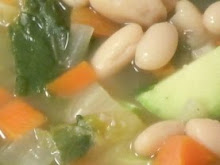This post has nothing to do with fiber art but I'm feeling seriously crabby.
I'm crabby about the crisis in baby formula. As a mother who failed at breastfeeding my first time around (as did my mother and my sister) and went straight to the bottle the second time around, I can't imagine what mothers are doing today when they can't find formula in the stores. And it seems that the only response from the public health establishment is to harangue them: DON'T, DON'T, DON'T make homemade formula.
I was particularly annoyed this afternoon to read my regular email newsletter from Dr. Leana Wen, who writes for the Washington Post. A reader complained to her: "Why aren't pediatricians sharing these recipes? Public health authorities keep treating mothers like they are too incompetent to follow simple directions to feed their babies."
Dr. Wen sanctimoniously explained the two reasons why mothers shouldn't make their own formula. "First, commercial formula is carefully researched through clinical trials to provide the specific nutrients babies need. Homemade recipes will likely lack these nutrients or contain them in improper amounts."
So how about sharing recipes that contain the right nutrients in the right amounts? Wouldn't that be better than leaving desperate parents to their own devices?
Dr. Wen continues: "Second, homemade recipes are rife with bacterial contamination. There are Internet recipes that call for using unpasteurized raw milk, which is really dangerous for babies."
Again, how about sharing a recipe that doesn't call for unpasteurized raw milk? Or sharing tips for making sure that homemade formula is protected as much as possible from bacteria? People are capable of canning tomatoes in sterile jars, and in an emergency -- which we have right now -- they should be able to carefully do the best possible job with baby formula.
Dr. Wen and WaPo are not alone in telling people what not to do but offering no help on what they should do instead. Here's the New York Times' list of don'ts:
"If you're running low on formula, don't dilute it or try to stretch it by adding water."
"Don't buy formula from an online marketplace like Facebook or Craigslist... Always go to a trusted store, pharmacy or directly to the manufacturer." (in other words, all those places that don't have any formula on the shelves...)
"Don't feed toddler formula to your infant. (Toddler formula may be OK for an older baby for a few days; check with your doctor.)"
"Buying imported European formulas, which aren't FDA-approved, has potential risks. For example, in Europe, a hypoallergenic formula may contain intact proteins, which can cause reactions in babies with allergies." (apparently the White House missed this memo, because they're already starting to airlift formula from Europe...)
For many reasons, this isn't turning out to be a great year for parents and children. Perhaps the FDA will eventually get around to approving a covid vaccine for little ones, or perhaps they'll just hope the little ones can survive to age 5. Perhaps the airlifted formula will be sufficient that the babies can survive long enough to be able to finally drink toddler formula.
And with any luck, the little ones will survive to adulthood without being shot up in their classrooms. Our grandson graduated from elementary school today, uneventfully. Other grandparents sadly are not as fortunate as we in that respect.

.JPG)









